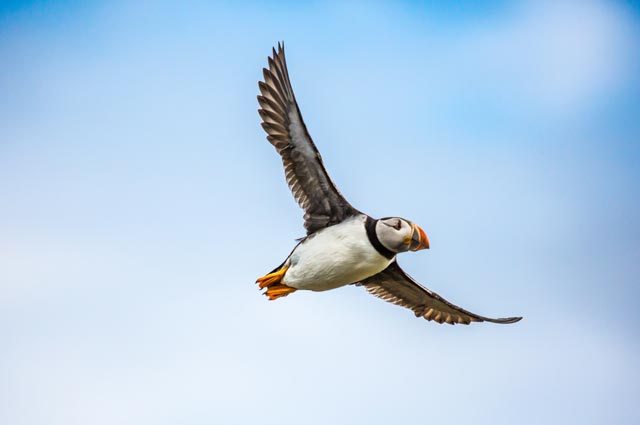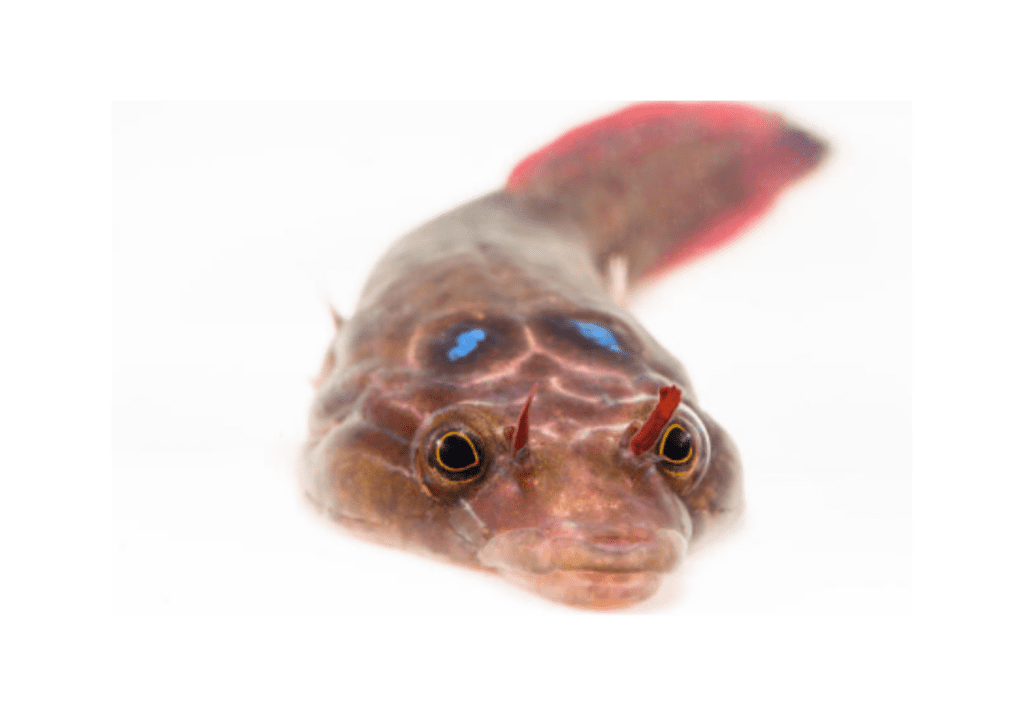Here at Padstow Sealife Safaris and immersing ourselves in nature every single day, we perhaps understand better than most the immense significance of sustainable tourism and the importance of protecting our marine life.
Cornwall’s Marine Biodiversity
Cornwall’s waters are teeming with life, from playful seals and dolphins to unique species of fish and rare seabirds. Cornwall has one of the most diverse habitats and marine ecosystems in the UK, and its crystal-clear waters offer unparalleled visibility for viewing these magnificent creatures in their natural habitat. Beneath the surface, colourful fish dart among swaying kelp forests, while crustaceans scuttle across rocky seabeds. The intricate behaviours and adaptations of lobsters, crabs, and shrimp offer a glimpse into the fascinating complexity of these fragile marine ecosystems so many creatures call home.
Cornwall’s rich biodiversity extends far beyond the charismatic dolphins and seals to include a plethora of lesser-known species, such as jellyfish, sea anemones, and nudibranchs. These often-overlooked creatures play crucial roles in maintaining the health and balance of marine ecosystems, contributing to the intricate web of life that sustains Cornwall’s coastal waters.
The Impact of Tourism on Marine Life in Cornwall
Pollution, overfishing, habitat degradation, and climate change pose significant threats to the health and resilience of marine ecosystems the world over, and Cornwall’s marine biodiversity too is not without its challenges.
Every year thousands of tourists flock to the coast in search of sun, sea and relaxation. Tourist-related activities often lead to the incorrect disposal of plastic waste, litter, and sewage into our oceans, damaging the very place they’ve come to enjoy.
Developers expanding their offerings of tourist accommodation contribute to the destruction of ecosystems, and this poses a real threat to the flora and fauna here in Cornwall. Not only this, overfishing to meet increasing human demand also poses a significant threat to marine ecosystems. This not only depletes our fish populations and disrupts their delicate ecosystems, but can also have a detrimental impact on local communities whose livelihoods depend on the sea.
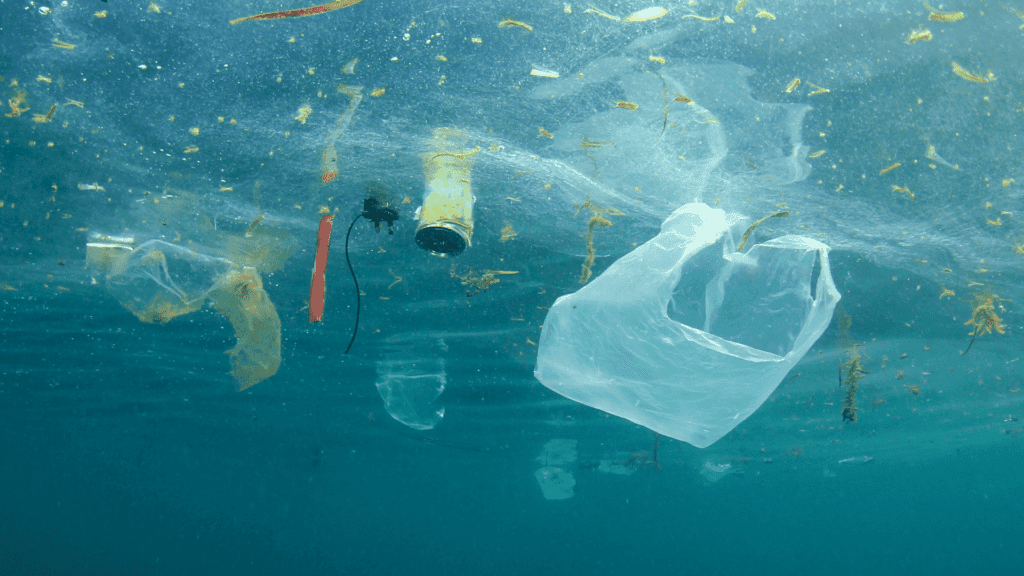
Whilst areas like Cornwall undoubtedly depend on tourism for their livelihoods and so we welcome tourists with open arms, it is the responsibility of service providers like us to spread the importance of sustainable tourism and educate visitors on the impact they might have upon our marine ecosystems. By adopting sustainable tourism practices such as responsible boat operation, minimal disturbance to wildlife, and proper waste management, we work hard to safeguard these precious habitats for future generations to enjoy.
Sustainable tourism helps raise awareness about marine conservation issues and promotes environmental stewardship. Through our sealife safari boat trips, we aim to educate our guests about the importance of marine conservation, the threats facing our oceans, and what they can do to help protect these valuable ecosystems. By fostering a deeper connection with the marine environment, we hope to inspire our guests to become advocates for marine conservation in their own communities.
Principles of Sustainable Tourism Cornwall
Sustainable tourism is founded upon a set of principles that prioritise the long-term well-being of destinations, their environments, cultures, and economies. These principles guide the development and operation of tourism activities in a way that minimises negative impacts and maximises positive contributions, ensuring that tourism remains sustainable and beneficial for all involved.
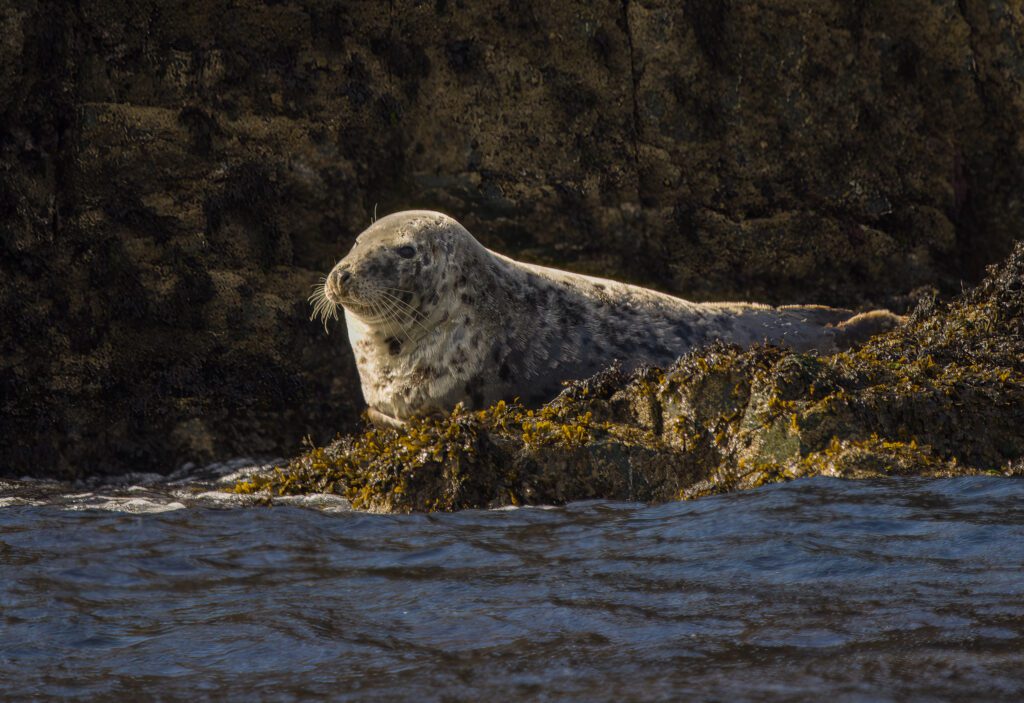
Here are the cornerstones of sustainable tourism Cornwall:
- Environmental Conservation: Sustainable tourism prioritises the protection and preservation of natural environments, including ecosystems, biodiversity, and scenic landscapes. Practices such as minimising pollution, reducing resource consumption, and promoting responsible waste management help mitigate the environmental impacts of tourism activities.
- Respect for Local Cultures: Sustainable tourism respects and celebrates the cultural heritage, traditions, and customs of host communities. It seeks to promote authentic cultural experiences while ensuring that local identities and livelihoods are preserved and valued. Engaging with local communities respectfully and inclusively fosters mutual understanding and appreciation.
- Community Engagement and Empowerment: Sustainable tourism actively involves local communities in decision-making processes and benefits them economically, socially, and culturally. By empowering local residents through employment opportunities, capacity building, and revenue-sharing mechanisms, tourism can become a catalyst for positive social change and community development.
- Economic Benefits Distribution: Sustainable tourism aims to distribute economic benefits equitably among all involved, including local businesses, workers, and residents. By promoting small-scale enterprises, supporting fair wages and working conditions, and minimising leakage of tourism revenue, sustainable tourism contributes to inclusive economic growth and poverty alleviation.
- Conservation of Cultural and Natural Heritage: Sustainable tourism recognises the importance of preserving and protecting cultural and natural heritage sites for future generations. Responsible tourism practices, such as visitor education, heritage conservation initiatives, and sustainable site management, help ensure the integrity and authenticity of these iconic landmarks.
- Sustainable Use of Resources: Sustainable tourism promotes the efficient and responsible use of natural resources (such as water, energy, and land) to minimise negative environmental impacts. Implementing eco-friendly technologies, adopting renewable energy sources, and promoting sustainable transportation options are key strategies for reducing resource consumption and carbon emissions.
- Education and Awareness: Sustainable tourism fosters a culture of environmental and cultural stewardship through education, interpretation, and awareness-raising initiatives. By providing visitors with information about local ecosystems, conservation issues, and responsible travel practices, tourism operators can empower travellers to make informed choices and minimise their environmental footprint.
- Continuous Improvement and Innovation: Sustainable tourism is a dynamic process that requires ongoing monitoring, evaluation, and adaptation to changing circumstances. Embracing innovation, best practices and collaboration enables tourism stakeholders to continually improve their sustainability performance and address emerging challenges.
By adhering to these principles of sustainable tourism, destinations can achieve a balance between economic development, environmental protection, and cultural preservation, ensuring that tourism remains a force for positive change and mutual benefit.
Sustainable Practices for Tourists in Cornwall
Making responsible, considered choices in all you do is paramount to the future of our natural world and will help to protect it for future generations. There are many things you can do as a tourist to help you support the local economy and protect the environment when you’re on holiday, some of which we’ve outlined below:
- Green Accommodation
Staying in eco-friendly accommodation that has renewable energy and uses land responsibly can help offset your carbon footprint when you travel, giving you peace of mind that you are operating sustainably and reducing the impact of tourism on the environment.
- Eco Travel
Using public transport wherever possible will minimise the number of cars on the road, helping lessen the problem of carbon emissions and pollution. This extends to how you arrive at your holiday destination too – air travel is more damaging to our planet than train travel, so consider lessening your carbon footprint by car sharing or choosing a more eco-friendly way of travelling to your destination. - Buy Local
Tourists can support the local economy by choosing local service providers and buying from responsible local food and drink producers. Choosing locally-grown food not only supports small businesses and bolsters the local economy, it also lessens the need for transportation which will help protect our planet (and guarantees fresher, more delicious seasonal produce!). - Local Conservation
Involving yourself in local conservation projects and becoming educated about the threats which face the area can help raise awareness and build support for these vital initiatives. By engaging with local businesses, using local guides and collaborating with conservation organisations, you will not only receive a meaningful experience, but also contribute positively to the local area.
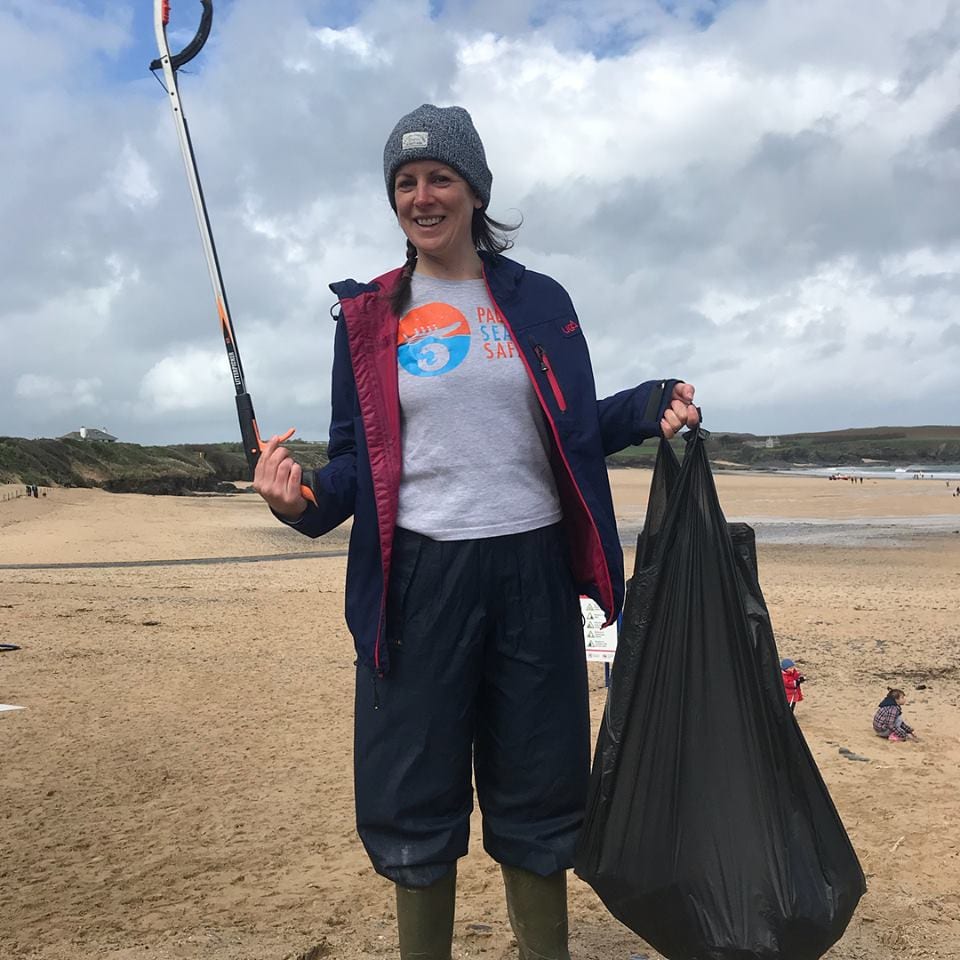
The Role of Local Communities in Marine Conservation
Local communities often possess traditional ecological knowledge passed down through generations, providing valuable insights into the rich dynamics of marine ecosystems, seasonal patterns, and species behaviours. This indigenous wisdom, rooted in centuries of coexistence with the marine environment, complements scientific research and informs conservation strategies.
Coastal communities increasingly rely on tourism as a source of income and employment. By engaging in sustainable tourism practices, such as responsible boat operations, nature-based tourism experiences, and community-led ecotourism initiatives, local residents can capitalise on the economic benefits of tourism while minimising negative impacts on marine environments. Community-based tourism models empower local communities to control tourism development, preserve cultural authenticity, and reinvest tourism revenues in conservation projects and community development initiatives.
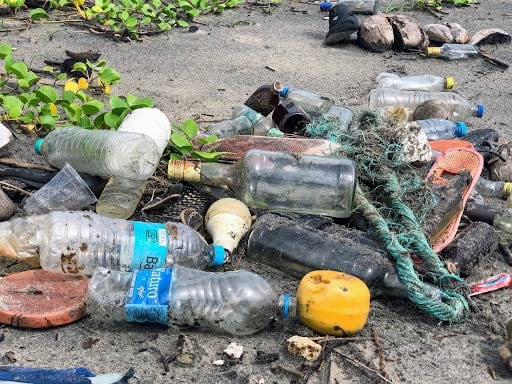
Local communities serve as educators and ambassadors for marine conservation, raising awareness among residents, visitors, and future generations about the importance of protecting coastal ecosystems and biodiversity. Through outreach programs, environmental education initiatives, and community events, residents can inspire conservation action, foster environmental stewardship, and cultivate a sense of pride in their marine heritage.
Government and Policy Support
Local communities have a powerful voice in advocating for policies and regulations that support marine conservation and sustainable coastal management. By participating in decision-making processes, engaging with policymakers, and mobilising grassroots movements, communities can influence government policies, shape resource management strategies, and advocate for the protection of marine habitats and species.
Our Efforts
Cornwall is a popular spot for tourism, and we’re the first to recommend our unparalleled scenery and wildlife. At Padstow Sealife Safaris, the team explore the local environment daily and witness first-hand the effects of visitors, both positive and negative. We channel a huge amount of our resources into conserving the environment and local wildlife, for future generations.
We record all our wildlife sightings on every trip and send them to the Cornwall Wildlife Trust through their ‘ORKS’ sightings record app, who, in turn, share their records with the Seawatch Foundation; contributing towards conservation research and helping to inform policymakers. Collecting this data doesn’t only mean keeping track of the numbers but also contributes to finding long-term solutions to the problems our Cornish marine life faces.
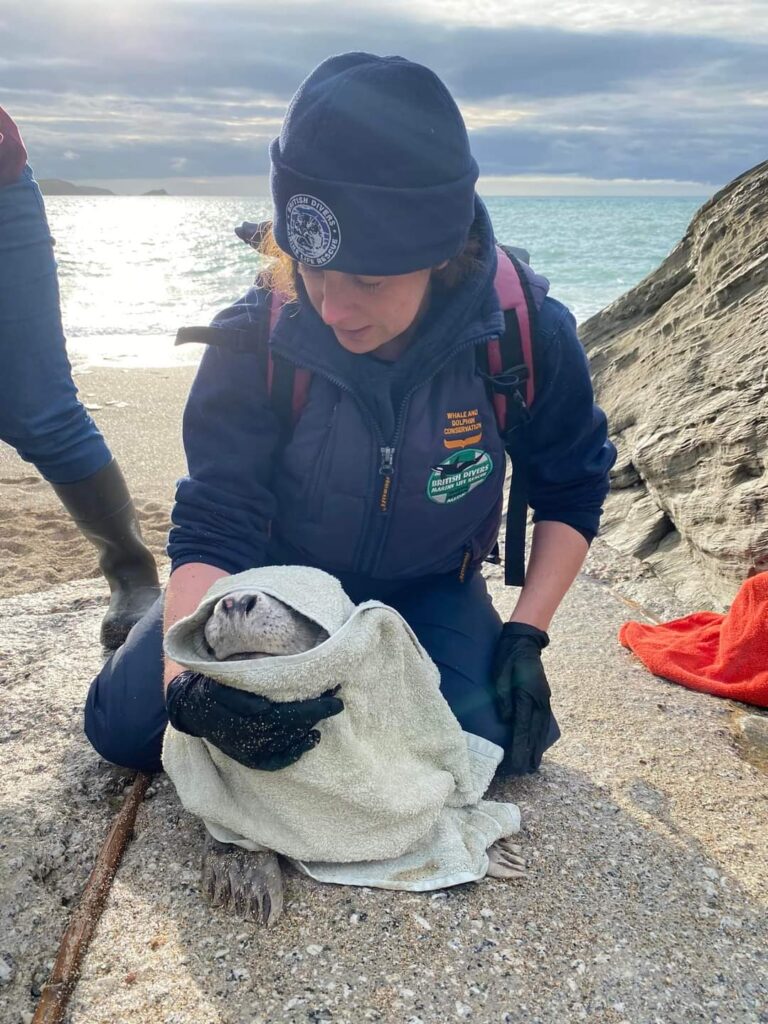
We understand that it is incredibly difficult to visit wildlife in its natural habitat and remain completely unnoticed, but we ensure that by keeping sensible speeds and distances when in the presence of wildlife, reading and responding to their behaviour, our impact on the marine life we are there to enjoy is kept to a minimum, avoiding disturbing them or disrupting their natural behaviours.
Education is an important factor of sustainable tourism and one which we place utmost importance. Not only do we engage passengers with interesting facts about the animals we spot, but we also explain the impacts affecting their conservation and the ways in which individuals can help.
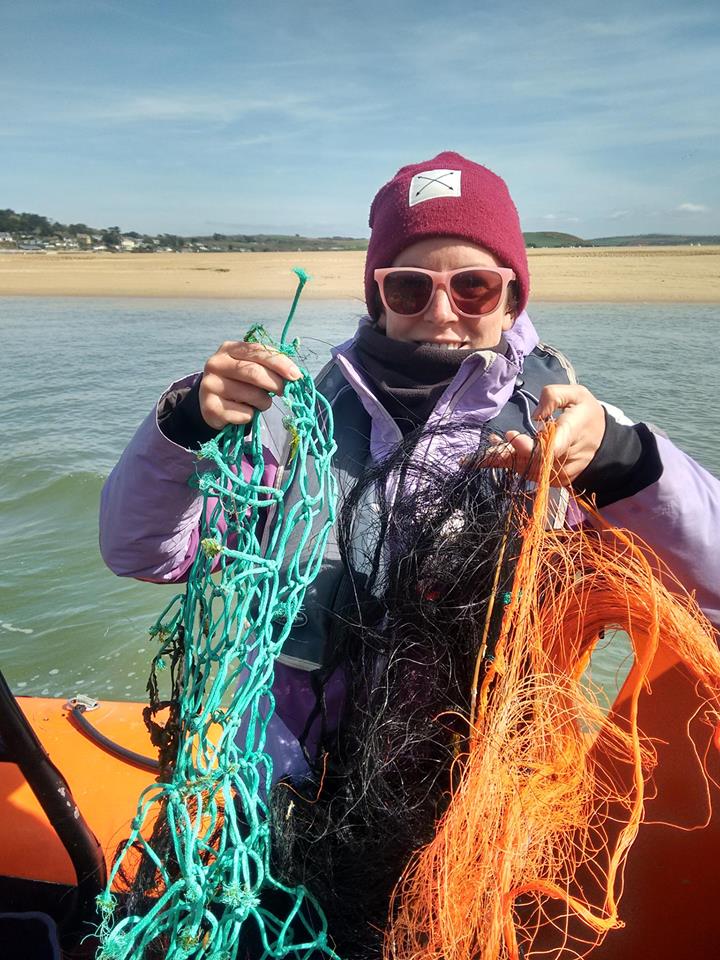
Summary
As a locally owned business, we wholeheartedly believe we have the responsibility to ensure this patch of land remains as varied and flourishing as it is now for future generations. Cornwall’s marine conservation is at the top of our agenda and the joy we’ve found from studying North Cornwall’s wildlife has nurtured an innate connection to nature.
The health of our oceans is intrinsically linked to the health of our planet and all life on Earth. By embracing sustainable tourism practices and working together to protect our marine life, we can ensure that future generations will continue to be able to experience the wonders of Cornwall’s coastal waters for years to come.
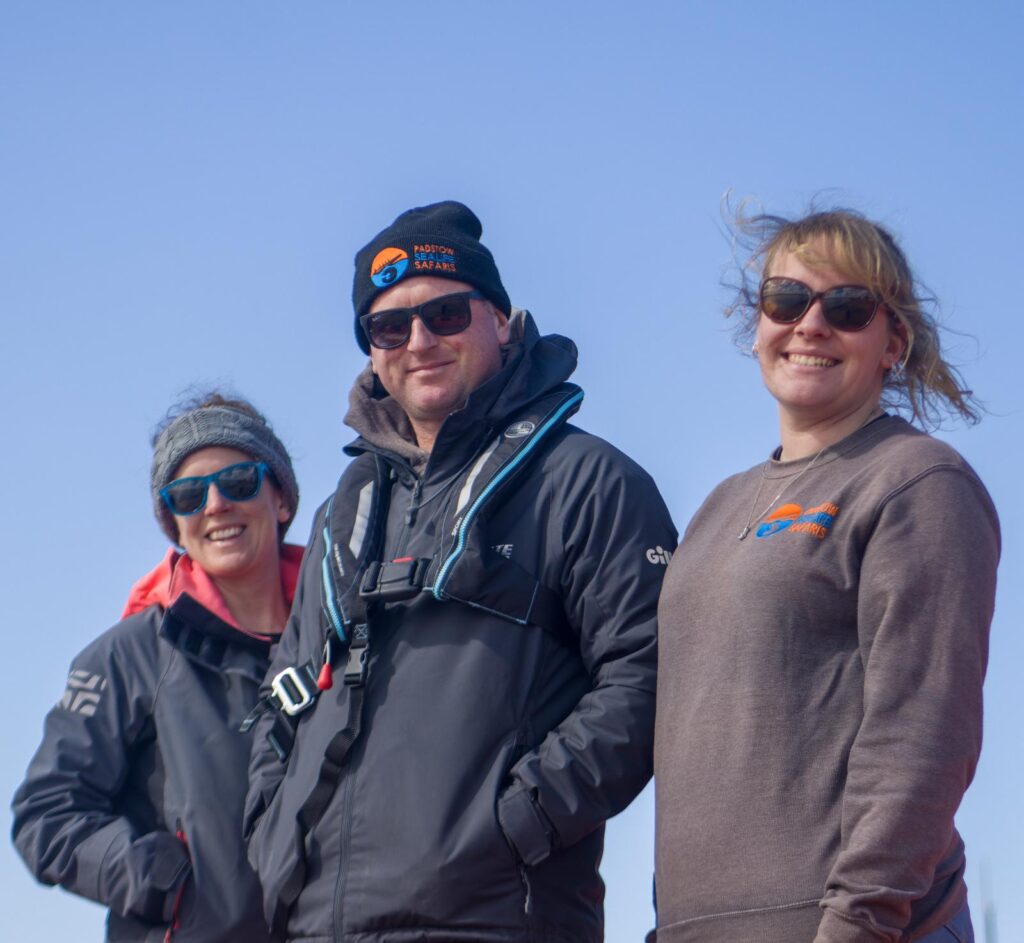
Sustainable Tourism FAQs
What is sustainable tourism, and why is it important for Cornwall’s marine environment?
Sustainable tourism refers to tourism practices that minimise negative environmental, social, and cultural impacts while maximising positive contributions to local communities and ecosystems. It’s crucial for Cornwall’s marine environment because it helps preserve the region’s rich biodiversity and fragile coastal ecosystems for future generations to enjoy.
How does sustainable tourism contribute to the conservation of Cornwall’s marine life?
Sustainable tourism contributes to the conservation of Cornwall’s marine life by promoting responsible interactions with marine wildlife, minimising pollution and habitat degradation, and supporting conservation initiatives and local communities. By adopting eco-friendly practices, tourism operators can reduce their environmental footprint and help protect sensitive marine habitats.
What are some specific examples of sustainable tourism practices employed by boat tour companies in Cornwall?
Boat tour companies in Cornwall employ various sustainable tourism practices, such as using fuel-efficient vessels, adhering to wildlife viewing guidelines to minimise disturbance to marine animals, and educating guests about marine conservation issues.
How can tourists minimise their impact on Cornwall’s marine ecosystems while enjoying sealife safari trips?
Tourists can minimise their impact on Cornwall’s marine ecosystems by choosing eco-certified tour operators, following responsible wildlife viewing guidelines, avoiding single-use plastics, and participating in voluntary conservation activities such as beach clean-ups or habitat restoration projects.
What role do local communities play in promoting sustainable tourism and protecting Cornwall’s marine biodiversity?
Local communities play a crucial role in promoting sustainable tourism by providing cultural insights, supporting conservation initiatives, and benefiting from tourism-related economic opportunities. Their engagement and empowerment are essential for the success of marine conservation efforts and the long-term sustainability of tourism in the region.

